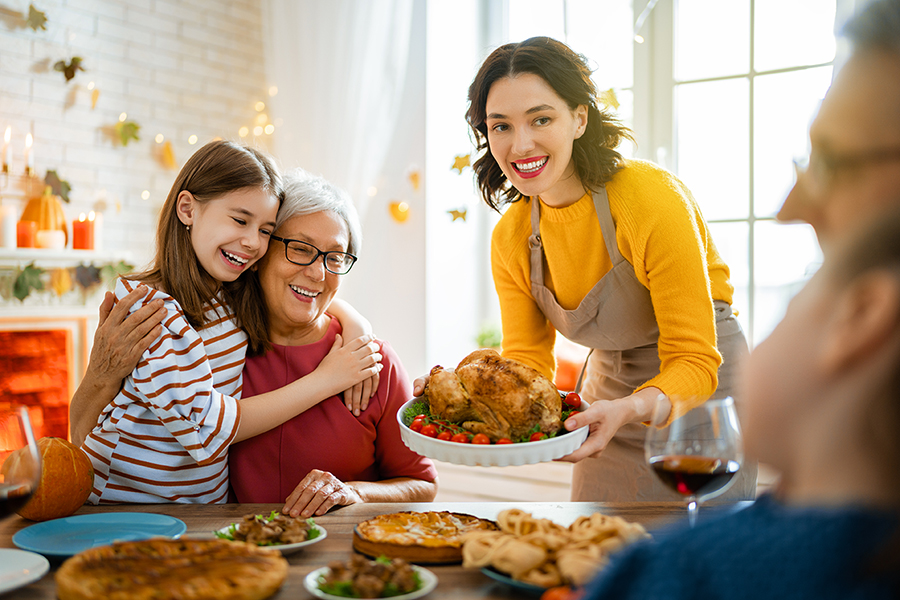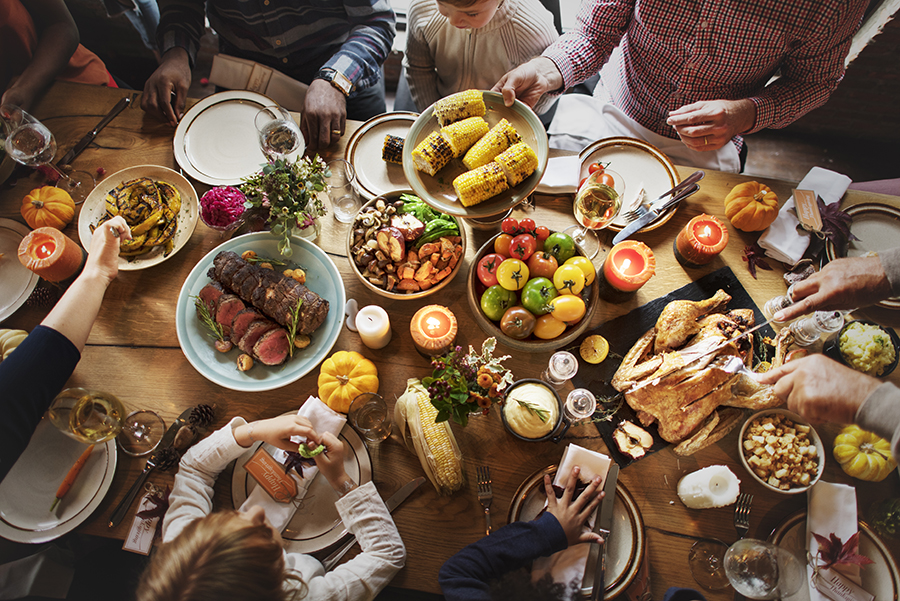Thanksgiving Day falls on Thursday, November 24.
Thanksgiving is a quintessentially American holiday. After Halloween (or even just before), if you aren’t already seeing Christmas decorations and merchandise in stores, you’re seeing Thanksgiving displays with turkeys, Pilgrims, and tables laden with food. The holiday occurs on the fourth Thursday of November.
In 1620, a ship called the Mayflower landed in what is now Plymouth, Massachusetts, carrying roughly one hundred English settlers now known as Pilgrims. They attempted to start a colony there, but had no survival skills and were decimated by malnutrition and disease their first winter.

The next year, however, they were approached by members of the native Abenaki, Pawtuxet, and Wampanoag tribes, who taught them how to farm and forage in their new environment. By the autumn of 1621, the Plymouth colony was flourishing, and Governor William Bradford held a three-day feast to celebrate their prosperity.
In the following centuries, the anniversary of the feast was celebrated informally (mostly by New England communities), and several early presidents made a habit of declaring days of thanks for their new country’s prosperity. However, Thanksgiving Day was not made a federal holiday until 1863, when President Abraham Lincoln responded to a campaign to do so in hopes that it would help “heal the wounds of the nation.”
Today, Thanksgiving is a holiday revolving around food and family. Relatives and loved ones gather to catch up, watch football or the annual Macy’s Thanksgiving Day Parade, and most importantly, share in a large, hearty meal together as they give thanks for the things and people in their lives that they are grateful for.
Though very unlike the foods that must have been shared at the original 1621 feast, these delicious treats have become traditional Thanksgiving fare:
● Turkey
● Cranberry sauce
● Stuffing
● Mashed potatoes and gravy
● Green beans
● Dinner rolls
● Pumpkin pie
Don’t feel too constrained by tradition: you can be very free with how you spend the holiday. Some modern-day celebrants, who may live too far away from their families, be estranged from them, or simply find their company unpleasant, choose to hold “Friendsgiving” parties with their other loved ones.

Controversy has long surrounded the holiday Native American communities have long taken issue with the sanitized image of the relationship between their ancestors and European settlers. While the alliance between the Pilgrims and the Wampanoag tribe lasted 50 years, the treaty they signed was broken after the deaths of the original signers and the peace ended by King Philip’s War. The Pilgrims’ arrival was one of the first steps of nationwide colonization, which was carried out through mass displacement, enslavement, and genocide of millions of Native Americans, and many are uncomfortable with celebrating them on Thanksgiving.
Since 1970, the United American Indians of New England (UAINE) have held a National Day of Mourning at Plymouth in place of Thanksgiving Day. This protest effort is intended to dispel popular misinformation about Thanksgiving and the relationship between settlers and Native Americans, honor Native history and culture and those who died under colonial oppression, and raise awareness of the issues that Native communities still face today.
Thanksgiving is a federal holiday, so expect government buildings and banks to be closed and stores to either be closed or operating on limited hours. If you are in Midtown, Manhattan, expect crowds and difficulty traveling between West 77th Street/Central Park West and 34th Street/Herald Square from the hours of 9:00 AM and 12:00 PM due to the Macy’s Thanksgiving Day Parade.
If you have any questions or concerns, feel free to contact us at info@gravityintprog.com. Stay safe and healthy!






